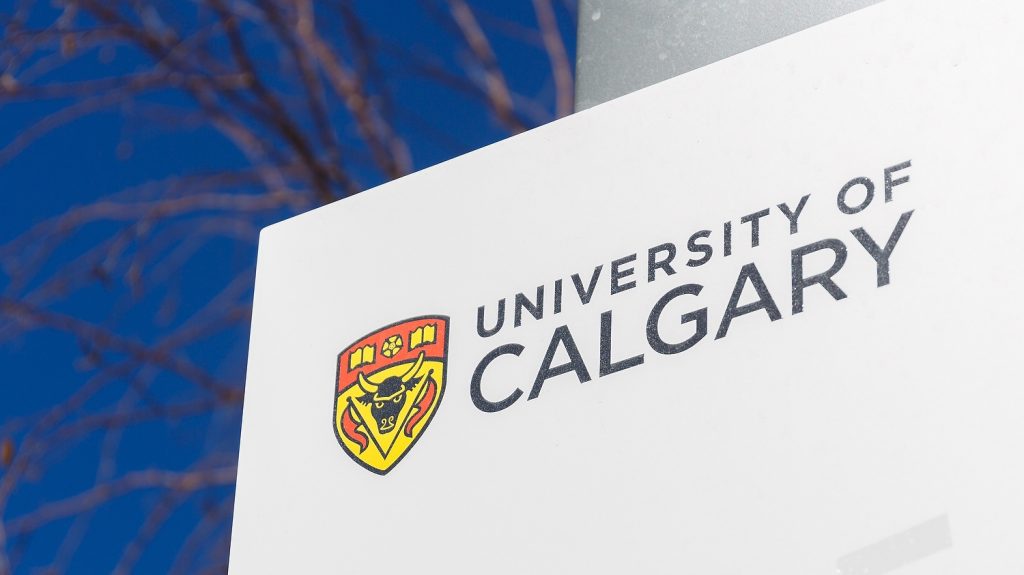UCalgary students feel left behind in Alberta budget

Posted Mar 2, 2023 8:51 am.
Last Updated Mar 3, 2023 6:24 pm.
The University of Calgary Students Union (SU) and the students reacting to the provincial budget announcement say they feel left out and left behind.
They say the budget misses the mark and loses an opportunity to enhance the much-delayed support announced by the province earlier in February.
Nicole Schmidt, who has been the president of the UCalgary SU for almost two years now, says the budget has left them disappointed.
“Though there were some positives with the provincial budget, we feel that it’s … too little, too late. We have been asking the province for a number of years now for stable, predictable and affordable tuition or tuition increases. That is not something we have seen happen,” Schmidt said.
“The supports offered in the budget don’t apply to most students. And a lot of these supports don’t actually start until next year.”
Tuition increases are capped at two per cent annually, which starts in 2024-2025, with the province saying this will reduce interest rates on student loans.
In addition, the province says it expects to spend around $5 billion on post-secondary schools, while it is projected to rake in $202 million from post-secondary institution fees.
This comes after the UCP cut school funding over the past three budgets.
UCalgary is being funded with $27 million for a multidisciplinary hub and the expansion of veterinary medicine “to address a critical shortage of large animal veterinarians in rural Alberta,” along with a faculty of veterinary medicine lab.
In addition, 20 more seats are being created for medical degrees in 2023 and will double each year until 2026.
About $111 million is being used to expand programs with the “highest demand” to bolster the future labour market.
Post-secondary tuition fees are estimated to total around $1.7 billion for the 2022-2023 year due to increased enrolment and fees.
The province expects that number to grow by $131 million to $1.9 billion but says this will be due to “enrolment growth” due to the tuition cap that will start that year.
‘It’s really hard to keep up’
CityNews talked to some students at the UCalgary main campus, and they feel the budget is just a mixed bag of numbers and doesn’t provide any actual relief for them.
“I am not really getting any help from the government. It’s hard to afford groceries and just afford tuition,” UCalgary student Daniel Lee said.
An international student at UCalgary, Ifeoluwa Okamode, says, “I find it quite hard because I am not paying, my parents are paying, and it is a big deal for them as they have their own expenses too, and the tuition just keeps going up.”
“It’s really hard to keep up with having a job and my studies at the same time in order to afford going to school,” said Elize Levner, a working student.
Related Stories:
-
Alberta Budget 2023: $2.4B surplus expected
-
Alberta post-secondary students welcome affordability measures, but wish they had come years earlier
-
Alberta government says universities must provide yearly reports on free speech
Schmidt says it’s time the provincial government steps up to help students survive these times of inflation.
“Students have been asking for a student jobs program since the last one was cancelled back in 2019. The government has announced two new jobs programs that undergraduate students just aren’t eligible for,” she said.
She says the UCalgary SU and the students have been asking to be included in support, the same as what Alberta families are receiving, and unfortunately, this hasn’t happened.
“Students are feeling cost pressures going all the way back to 2019 and have received minimal help from the province,” Schmidt said.
“Budget 2023 could have been an opportunity to make new programs work for students, but that unfortunately didn’t happen. Tuition is up 33 per cent or $1,200 a year at the University of Calgary, and education quality is stagnant or declining.”
In a statement, UCalgary president and vice-chancellor Dr. Ed McCauley says investment in enrollment is a “step toward meeting growing demands for UCalgary.”
“The budget also took positive steps towards addressing student affordability issues,’ the statement reads.
However, McCauley warned in the statement that it’s still a “challenging time.”
“Growth in the City of Calgary will need to be met with essential investment in teaching, learning and research. These investments grow and diversify Calgary’s economy – and more than pay for themselves over the long term,” he said.
“We hope this budget is the precursor to further support from the province for an institution that helps drive our current economy while also ensuring Alberta has a prosperous and sustainable future.”
The Ministry of Advanced Education told CityNews in a statement the that province will decrease interest rates on student loans, extend the student loan grace period to 12 months, and expand “eligibility for the Repayment Assistance Plan, effective July 1st 2023.”
“The changes to the grace period will benefit 57,000 graduating students each year and that the changes to the student loan interest rate will benefit 164,000 current student loan borrowers, as well as future borrowers,” said Sam Blacket, press secretary of the Ministry of Advanced Education.
Editor’s note: This article has been updated to include comment from the province.








